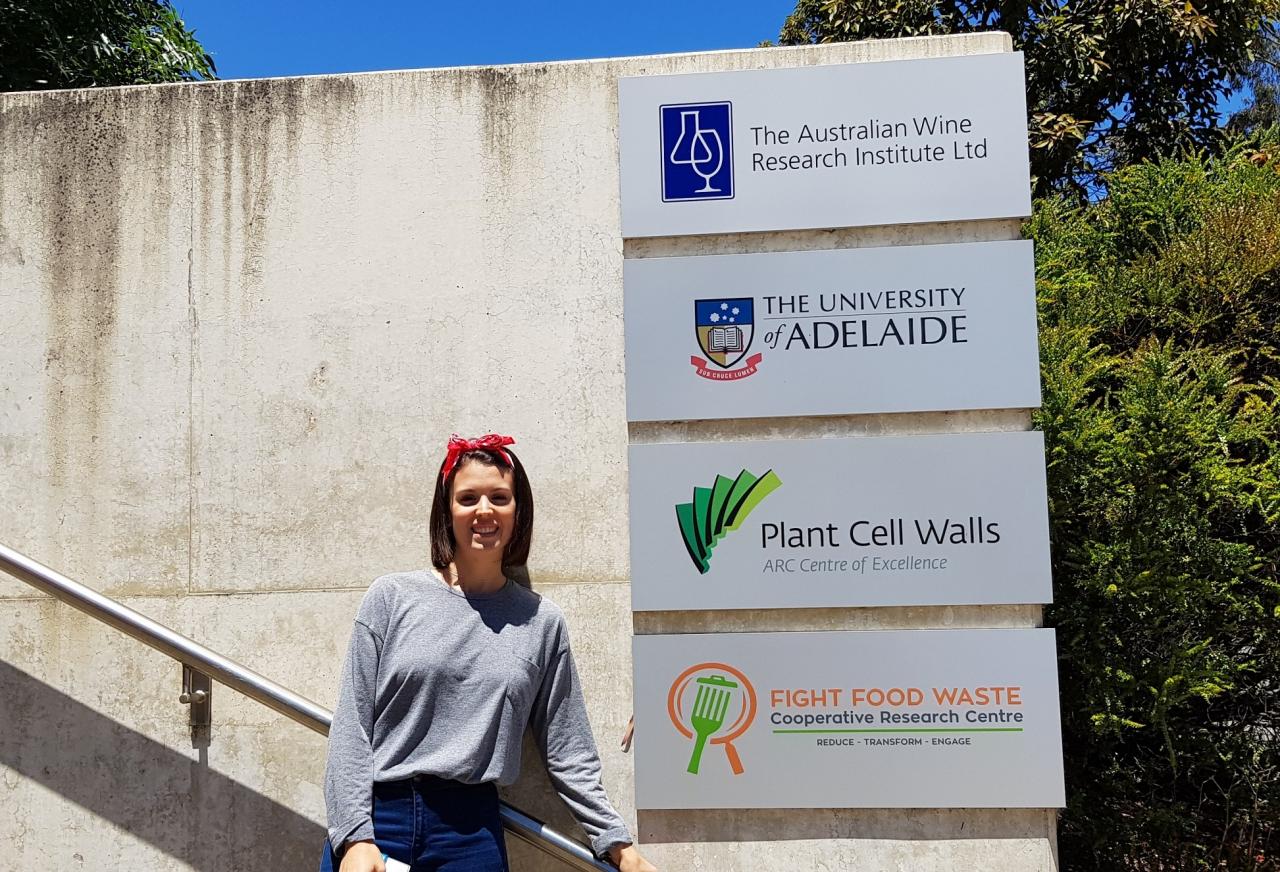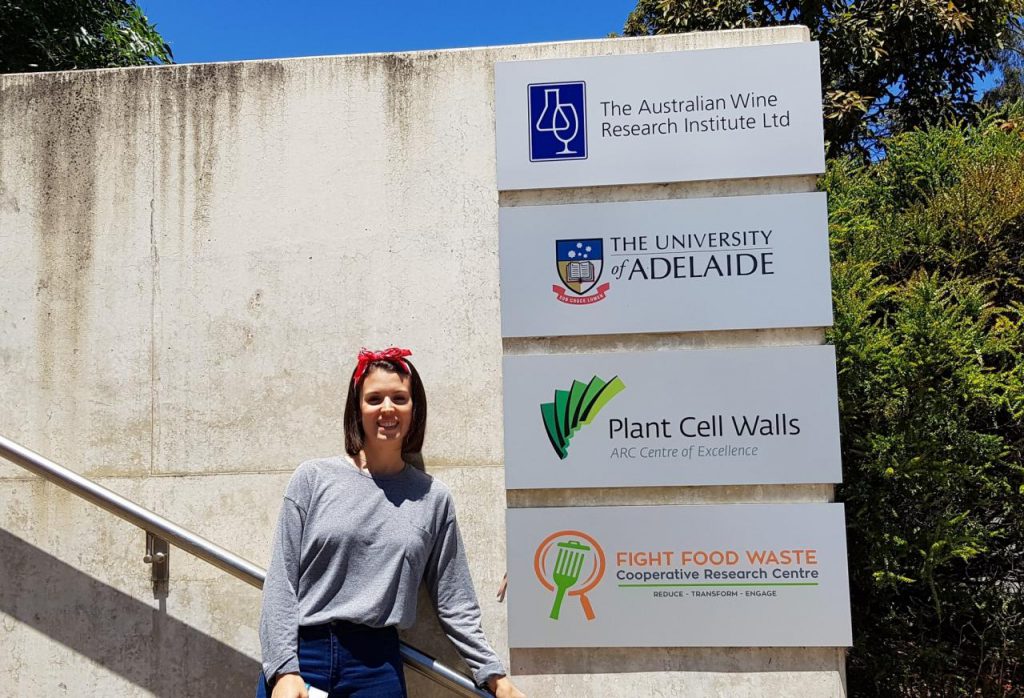
December 4, 2019, by Joshua Hawkins
Internship at the Australian Wine Research Institute, Adelaide
By Lidia Delgado, Cohort 3 student, School of Chemistry

Lidia Delgado in Adelaide
One of the aspects of the CDT in Sustainable Chemistry training programme I was particularly interested in was [EH1] the opportunity of external placement within industry or other research institutions.
I am working on the characterization of novel enzymes with industrial application, with a particular focus on the wine industry. [EH2] A year and a half into my research project, I already had three fully characterised enzymes and I was ready to progress onto the second part of the project, which consisted of identifying and quantifying aromas released in wine after being treated with my enzymes. I was looking for a lab that specialised in analytical wine chemistry, and was fortunate to be accepted by one of the leaders in this field – the Australian Wine Research Institute (AWRI) based in Adelaide, Australia.
My research project requires use of gas chromatography (GC), a technique that allows the separation of the volatiles contained on a sample, and mass spectrometry (MS) a technique complementary to GC for the identification of those compounds. The AWRI has a long tradition using these techniques. Since 1971 (when they acquired one of the first MS of Australia) mass spectrometry has made a significant contribution to wine research at the Australian Wine Research Institute (AWRI). In the last decades, MS has been involved in an expanded range of studies and now accounts for more than 40% of AWRI publications appearing in peer reviewed scientific journals. Studies involving MS include the analysis of grape-derived and fermentation derived volatiles, oak volatiles, taint compounds, proteins, pigments and tannins.
My supervisors at the University of Nottingham and the CDT management team supported me with the practical arrangements for my six-month placement, and on the 16th September, I was on a plane to Australia. I admit I was a bit scared, but from the start, everything ran smoothly and without a problem. My new colleagues at AWRI were very welcoming and supportive, lab facilities impressive and the city amazing.
I was working under the supervision of Dr Markus Herderitch and Dr Mango Parker, who provided me with the training on the techniques and the instruments, necessary for my future work at the institute. At the beginning the lab work was challenging as it was my first experience of working with analytical chemistry, but I soon adapted and started to generate plenty of results.[EH3] During the six months I spent at the AWRI, I gained new skills in the determination of aromas by GC-MS, I learned a lot about wine and grape science, I had the opportunity to attend 2 conferences (one in Adelaide and the other one in Malaysia) and I gave a talk at a summer school. I also have made many contacts in different areas, with whom I hope to work in the future.
Now that I’m back in Nottingham, and working on a paper to include the results I obtained in Australia, I am grateful for such a lifetime experience.
I would strongly recommend to all students to go on a placement during the PhD if this option available. It is important to choose the right placement that compliments your research and is in line with your interests. As we are very busy in our labs, it is natural to feel that there is never a right time to do it, but a carefully selected placement is not time lost, it is actually value added to your PhD.
No comments yet, fill out a comment to be the first

Leave a Reply